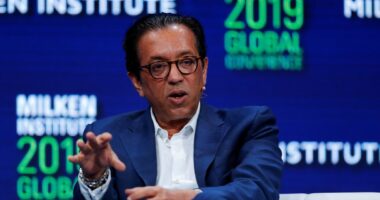
WASHINGTON—The Federal Reserve will continue supporting the U.S. economy through low interest rates and hefty asset purchases, Chairman Jerome Powell said Wednesday, stressing that the labor market remains stunted by the pandemic.
Mr. Powell reiterated his view that “a patiently accommodative monetary-policy stance” will be an important factor in returning the economy to a healthy state in which workers—particularly low-income ones—can find jobs. That means the Fed is likely to refrain from raising interest rates or reducing the pace of its bond purchases for the foreseeable future.
The Fed chief also repeated his call for more fiscal support for the economy, saying that monetary policy alone won’t be enough to restore the labor market to full strength. “It will require a society-wide commitment, with contributions from across government and the private sector,” Mr. Powell said in remarks prepared for delivery at The Economic Club of New York.
“Workers and households who struggle to find their place in the post-pandemic economy are likely to need continued support,” he added. “The same is true for many small businesses that are likely to prosper again once the pandemic is behind us.”
The U.S. economy shrank 3.5% last year, its largest yearly contraction since just after World War II, the Commerce Department reported. The U.S. unemployment rate fell to 6.3% in January from 6.7% a month earlier, the Labor Department said Friday. That compares with a 3.5% unemployment rate in February 2020, before the pandemic struck.








